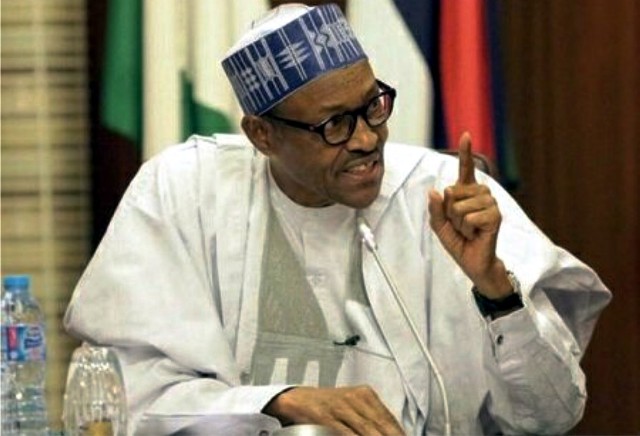Opinion
Buhari’s Change And Economic Realities

In the next few months, precisely, May 29, 2017, the administration of President Muhammadu Buhari will step into its second half of the four-year tenure. Indeed, Nigerians’ experience since the inception of the administration is better imagined than described following the foreign exchange crisis occasioned by unprecedented global crash in prices of crude oil.
To a few that superficially voted for All Progressives Congress (APC), it was a drift, hence their gradual withdrawal of allegiances. Incidentally, the deed is already done. Beyond doubt, it was tough, rough and hard-hitting.
To others, particularly matured minds, it is a worthy sacrifice, akin to the Biblical Moses and his journey to the promised land; a land flowing with milk and honey. On the way, it became sturdy that some couldn’t sustain it and lost confidence in Moses and his change mantra, and requested for reinstatement to former positions.
However, those that conscientiously persisted met overwhelming expectations. In other words, monumental support to Federal Government at this critical period is vital vis-à-vis its rigorous efforts towards restructuring the economy.
Reports across most states unveiling various blueprints towards becoming self-reliant on the same commodities that were hitherto imported, deserves acclamation. Abia State Governor, Okezie Ikpeazu, recently affirmed that Aba traders presently export N1bn worth of quality leather-shoes to overseas weekly. Out of curiosity, I discovered that made-in-Nigeria shoes have indeed moved to the next level; on designs, quality and convenience comparable to foreign shoes.
By implication, the ban placed on some imported goods by the Federal Government, though negatively affected importers, is positively resuscitating our local industries thereby improving the economy in terms of job creation. With the new mindset on improving our products, if adequate financial facilities can be made available to genuine indigenous manufacturers towards boosting large scale production, there will be an improvement in the economy and standard of living.
Already, Lagos, Ebonyi, Enugu and a host of other states, for instance, are waxing very strong in rice production. If the tempo is progressively sustained, the prices of rice may crash soon.
In Anambra State, Governor Willie Obiano unequivocally announced the state’s plan to export one million tubers of yam and other vegetables. Also recently, Governor Nyesom Wike of Rivers State presented to the Acting President, as Vice President Yemi Osinbajo then was, his action plan towards boosting agriculture in the State and reiterated his willingness to collaborate with the Federal Government. Suffice it to say that successful diversification to agriculture may soon be a done deal in Buhari’s change mantra.
Incontrovertibly, the vacation embarked upon by President Buhari in the United Kingdom which paved way for Osinbajo to take charge on acting capacity proved one or two remarkable points to the country. First, Professor Osinbajo operated and associated freely with the states, people and localities that were hitherto no-go areas for President Buhari. By implications, the economy could blossom if Nigerians see each other as stakeholders in the Nigerian project.
The second point to decipher is that the adoption of Professor Osinbajo as the running mate to Buhari as well as his engagement to head Buhari’s economic team is now evidently profound and philosophical. It clearly shows that with the Buhari’s political will and Osinbajo’s wealth of knowledge and subtlety, the country is settled for inevitable transformation. Those that hitherto regarded Osinbajo’s office as redundant are now pouring encomiums on his performance, for doing same things the government would have still done but with resistance if Buhari never travelled. The stratagem or rather diplomacy applied by the government deserves commendation.
Meanwhile, as the Federal Government works tirelessly towards fixing the country, some more radical actions are still needed especially in the area of deploying more competent hands in some of the key sectors. This should, however, extend to other arms of government; judiciary and legislature.
The continued frivolous allowances earned by the Nigerian lawmakers amidst economic recession outside salaries in a country where many families cry for survival is abysmally the height of wickedness and insensitivity. If one may ask, what is the justification for paying such allowances to senators and members of the House of Representatives who are engaged on full time vocation until the expiry of tenure?
However, as the second half of the administration commences shortly, President Buhari should try as much as possible to do appraisal of his cabinet and reshuffle where necessary. Those that made the cabinet list on partisan lines should be swapped with more competent hands.
In all games, particularly politics, second half is always a decisive moment and no leader takes it for granted. In the next two years, dividends of democracy ought to be obvious in the lives of the citizenry. Without doubt, as 2019 draws nearer, elections will preoccupy the minds, but our leaders should know that there is no better way to strategize for victory than satisfactorily meeting the targets of the electorate.
Umegboro, public affairs analyst, lives in Abuja.
Carl Umegboro
Opinion
Righteous Leadership Still Thrives

Opinion
Incentives: Key to Police Morale

Opinion
Time and Season Can Tell

-

 Education5 days ago
Education5 days agoElga boss tasks law students on academics strides
-

 News1 day ago
News1 day agoAmend Constitution To Accommodate State Police, Tinubu Tells Senators
-

 Politics1 day ago
Politics1 day agoSenate Urges Tinubu To Sack CAC Boss
-

 News1 day ago
News1 day agoDisu Takes Over As New IGP …Declares Total War On Corruption, Impunity
-
Business1 day ago
President Tinubu Extends Raw Shea Nuts Export Ban To 2027
-
Business1 day ago
Crisis Response: EU-project Delivers New Vet. Clinic To Katsina Govt.
-

 Business1 day ago
Business1 day agoPENGASSAN Rejects Presidential EO On Oil, Gas Revenue Remittance … Seeks PIA Review
-
Business1 day ago
FG Pushes Cassava Bioethanol Drive To Boost Industrial Growth

